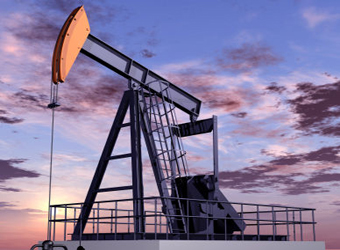Construction of Egypt’s largest oil refinery, with capacity to produce half the volume of diesel currently being imported, is expected to begin next week, the project leader said.
The Egyptian Refinery Company (ERC) plant, 20 kilometres north of Cairo, will use fuel oil produced by an old refinery nearby as feedstock to produce 2.3 million tonnes of diesel per year.
It should cut Egypt’s reliance on imports of crude oil and petroleum products which have become a severe drain on the government’s scarce foreign currency reserves.
“It’s been a long and arduous battle but we’re finally getting there,” Tom Thomason, chief executive of ERC, said in a phone interview this week.
“Cairo is a very big market for diesel … Our project will avoid importing and shipping costs as we’re right here,” Thomason said. ERC hopes to bring the refinery onstream by early 2017, he said.
The refinery was proposed in 2006 but efforts to secure financing were frustrated by the financial crisis of 2008-09 and then by the Egyptian uprising of 2011 that toppled former president Hosni Mubarak.
“The world kind of stopped for us at these points but we got over it and then finally reached financial close in June 2012,” Thomason said.
ERC has secured funding through a USD 2.6 bln debt package and USD 1.1 bln in equity provided by the Egyptian General Petroleum Corporation (EGPC), Qatar Petroleum International and Egyptian private equity firm Citadel Capital, among others.
DIESEL DONATIONS
Cairo is trying to meet its growing fuel needs through donations from oil-producing Gulf nations that supported the army’s ouster of Islamist President Mohamed Morsi last July.
Diesel shortages stoked existing public anger and mass protests that preceded Morsi’s removal and his administration was largely blamed for the supply problems.
A lack of gas or alternative fuels to fire power stations has caused frequent blackouts in recent summers in a country where air conditioning use soars from May to August.
Less than a year after Morsi was deposed, Egypt’s annual summer supply problems appear to be getting worse.
The power cuts have already started this spring, despite temperatures in April far lower than during the peak summer season. And there seems little hope of Egyptians enjoying stable energy supplies until the root causes – massive fuel subsidies – are tackled.
Cairo spends USD 15 bln a year, a fifth of the state budget, on keeping fuel pump prices at well below international market rates. Yet this means Egyptians have no incentive to curb consumption of fuel that costs state-run suppliers much more to buy than they sell it for.
Since the ouster of Morsi, Gulf Arab donors have propped up Egypt’s new military government with multi-billion dollar gifts, including USD 4 bln in oil products.
Once the new refinery is built, ERC will buy its feedstock from the Cairo Oil Refinery Company and sell the diesel it produces to the government at international market prices under a 25-year deal.
The refinery should help state-run EGPC, which owns nearly a quarter of the project, save around $300 million a year.
It could also prove a test case for Egypt’s other, aging refineries in need of upgrades.
“Egypt’s refineries are very old, some of them are so old they are like antiques, so yes this project has the potential for replication,” Thomason said.
Source: Reuters



